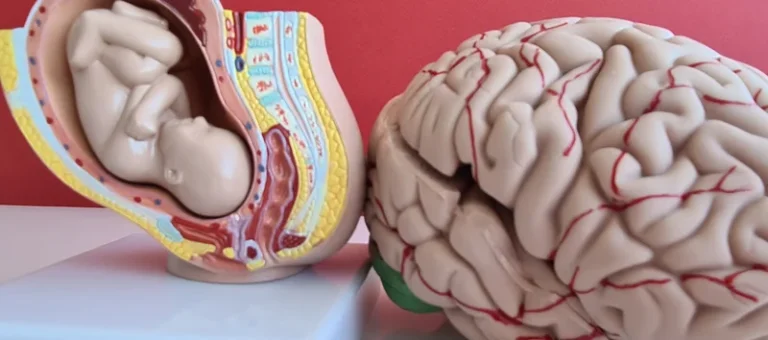Acute alcohol toxicity and withdrawal in the emergency room and medical admissions unit PMC

Severe alcohol intoxication — or alcohol poisoning — is a dangerous condition that requires immediate medical attention. At this stage of intoxication, the person’s behavior will be normal with no visible signs of intoxication, such as slurred speech or delayed reaction time. These effects typically start to occur when alcohol reaches a certain percentage of a person’s bloodstream, known as their blood alcohol content (BAC). Intoxication can range from mild to severe, depending on the amount consumed, speed of ingestion, metabolism, body weight, substance, and other factors.
When is Alcohol Intoxication a Sign of Alcoholism?
- The chance of an alcohol overdose is very high here, and medical help should be sought immediately.
- Confirmation by breath or blood alcohol levels is useful for legal purposes (eg, to document intoxication in drivers or employees who appear impaired).
- For example, a number of studies using nonhuman primates have shown that early experiences affect serotonin functioning during infancy and childhood (Higley et al. 1992b, 1993, 1996e; Kraemer et al. 1989).
- When someone drinks alcohol for a prolonged period of time and then stops, the body reacts to its absence.
- It results from the consumption of an excessive amount of alcohol within a relatively brief time.
The drug of choice in this situation is haloperidol, administered parenterally. Subsequent, careful monitoring will be required, watching specifically for features of alcohol https://ecosoberhouse.com/ withdrawal. Alcohol abuse treatment can address the physical, emotional, and behavioral aspects of problematic drinking and regain control over your health and well-being.
- They might just pass out at this point, and they must be cared for because it is also possible that their gag reflex will be affected.
- Emergency treatment is needed when very large amounts of alcohol consumed or alcohol withdrawal causes moderate to severe symptoms.
Timeline of Alcohol Withdrawal
The fits should be brought under control with parenteral benzodiazepines but with great care as the blood alcohol concentration may still be significantly elevated. An electroencephalogram should be undertaken in all individuals experiencing this type of fitting for the first time, together with some form of cerebral imaging, either CT or MRI, in order to exclude potential underlying pathology. There is no indication for use of prophylactic anti-epileptic medication in this setting. This consistent high level of interindividual stability is not limited to the laboratory setting, where environmental changes are closely controlled and experiences are relatively homogeneous. In their natural environment, adolescent male macaques migrate from their birth groups to join new social groups (Higley et al. 1994). This is a period of high social stress, because the young males must form new relationships and face social challenges in which trauma and premature mortality are relatively frequent (Higley et al. 1994).

Social Networks
The intoxicated individual may seem gregarious and loquacious but will have limited memory of the blackout period. Treatment for alcohol poisoning includes observing vital signs, administering oxygen, and in which stage of intoxication does an individual become aggressive or withdrawn and sleepy providing IV fluids. In some cases, a person may have their stomach pumped to remove alcohol before it can be absorbed or they may be given activated charcoal to minimize further alcohol absorption.
Alcohol Intoxication: What You Should Know
- This may be attributable partly to the tenuous relationship between alcohol-induced aggression in the laboratory and real-world alcohol-induced violence.
- Primate societies are explicitly structured to assure that infants receive such input.
- In addition, they may have a whole host of other alcohol-related physical and psychosocial problems.
- However, finding a low BAC in patients who have altered mental status is helpful because it expedites the search for an alternate cause.
- In the emergency room, a doctor will check their BAC and look for other signs of alcohol poisoning, such as a slow heart rate and low blood sugar and electrolyte levels.
- It’s a myth that a person can recover from alcohol intoxication by sleeping, taking a cold shower, going for a walk, or drinking black coffee or caffeine.
When left unchecked, this addiction can lead to ruined relationships, careers, and health. Aside from all the previously mentioned symptoms, becoming intoxicated puts you at risk for multiple types of dangerous situations. As people drink more, they begin to have more pronounced impairment in their balance, coordination, speech, and attention. When a person has had quite a bit to drink, they may experience lapses in judgment or heightened emotional intensity.

Excitement (0.09 – 0.25% BAC)

The chance of an alcohol overdose is very high here, and medical help should be sought immediately. The person is more confident, friendly, impulsive, and has a shorter attention span. If you are concerned about someone with these symptoms, you should seek immediate medical attention. If you don’t already have a supportive network, you can make new connections by joining social media communities dedicated to alcohol-free living. This process temporarily restores homeostasis, or chemical balance, in an effort to counteract the impact of long-term alcohol use on the brain.

